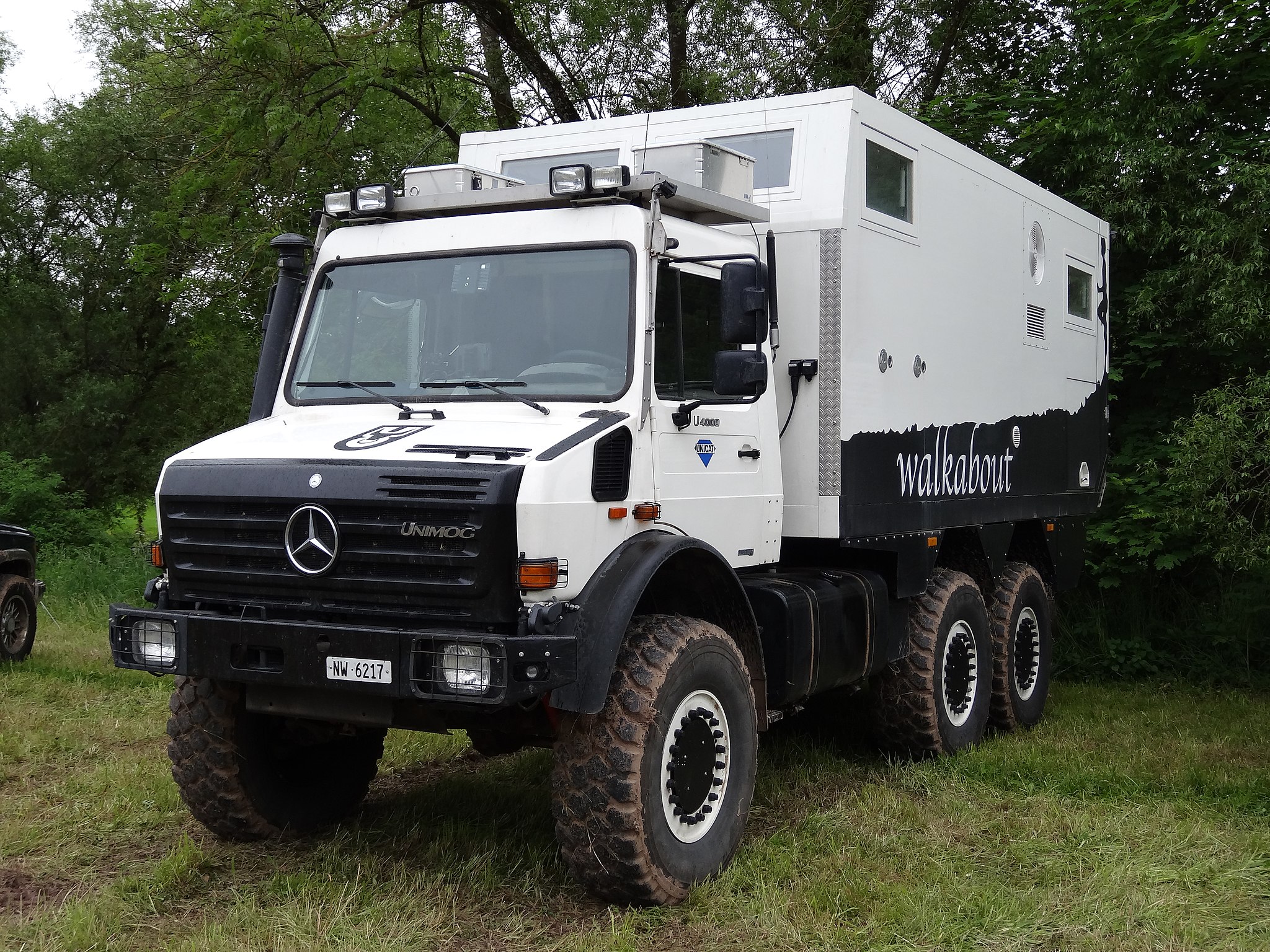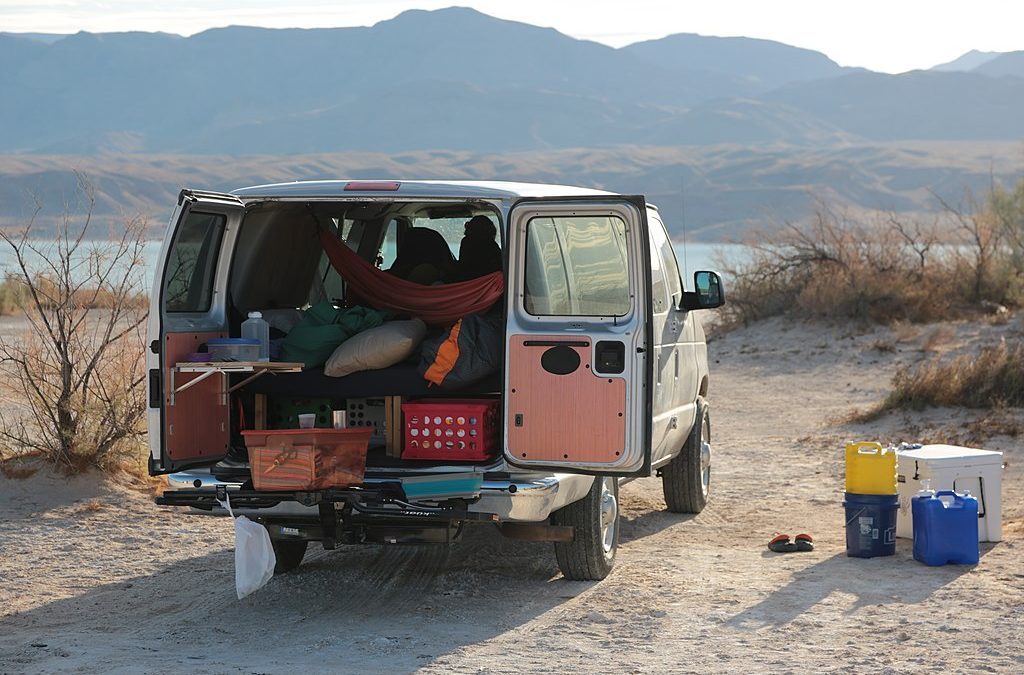If you’re an adventurous RVer looking for an exciting way to explore nature, off-road boondocking might be the perfect solution for you. With off-road boondocking, you can camp in the wilderness, away from traditional campsites and RV parks, and experience nature up close and personal.
However, off-road boondocking requires careful planning, preparation, and consideration. In this ultimate guide to off-road RV boondocking, we will provide you with essential tips and considerations to make your next off-road boondocking adventure a success.
Off-road RV boondocking is a form of camping where you camp in the wilderness, away from traditional campsites and RV parks. It allows you to experience nature up close and personal and is a great way to escape the crowds and noise of traditional camping areas.
Before you hit the road for your next off-road boondocking adventure, it is crucial to plan and prepare carefully. In this article, we will provide you with essential tips and considerations for a successful off-road boondocking experience.
Pre-Trip Planning
 Image by: Klaus Nahr from Germany, CC BY-SA 2.0, via Wikimedia Commons
Image by: Klaus Nahr from Germany, CC BY-SA 2.0, via Wikimedia Commons
Choosing the Right RV for Off-Road Boondocking
When it comes to off-road boondocking, your choice of RV can make or break your experience. Off-road boondocking requires an RV that is sturdy, durable, and capable of handling rough terrain. Consider investing in an off-road or four-wheel-drive RV that can handle the challenges of off-road boondocking.
Researching Off-Road Boondocking Destinations
Before heading out, do your research and find off-road boondocking destinations that fit your preferences and needs. Research the terrain, weather, and wildlife to help you prepare better. Consider using online resources to find the best off-road boondocking spots in your area.
Understanding the Rules and Regulations of Boondocking
It is essential to understand the rules and regulations of boondocking in the area you plan to visit. Some areas may have restrictions on camping, while others may require a permit or have specific rules for waste disposal. Ensure that you follow the rules to avoid any legal or environmental issues.
Packing Essentials for Off-Road Boondocking
When packing for off-road boondocking, you must consider your needs, comfort, and safety. Pack enough food, water, and clothing for your trip, and ensure that you have a first-aid kit, navigation tools, and communication devices. Don’t forget to bring essential camping equipment such as a tent, sleeping bags, and camp chairs.
Essential Off-Road RV Boondocking Tips
Choosing the Best Campsite
Choosing the right campsite is crucial for an enjoyable off-road boondocking experience. Look for a flat and level site away from hazards such as rocks, steep slopes, and flood-prone areas. Consider the proximity to water sources, hiking trails, and other attractions, as well as privacy and noise level.
Setting Up Camp
When setting up camp, ensure that you follow Leave No Trace principles and leave the area as you found it. Be respectful of the environment and wildlife, and avoid disturbing the natural habitat. Set up your RV and camping equipment carefully to prevent damage to the surroundings.
Dealing with Waste Disposal
Off-road boondocking requires careful management of waste disposal to minimize your impact on the environment. Bring a portable toilet or use a hole dug at least six inches deep for human waste disposal. For gray water, use a portable holding tank or dispose ofit away from water sources and other sensitive areas. Pack out all your trash and dispose of it properly at the designated sites.
Staying Safe in the Wilderness
When off-road boondocking, you are away from traditional amenities and emergency services. Therefore, it’s crucial to stay safe by being prepared and aware of your surroundings. Carry a first-aid kit, navigation tools, and communication devices, and be prepared for changes in weather conditions. Learn basic survival skills and avoid risky activities that can put you in danger.
Finding Water Sources
Off-road boondocking requires careful management of your water supply. Before you hit the road, research the availability of water sources in the area you plan to visit. Consider bringing a portable water filtration system, water containers, and water treatment tablets. Also, learn how to conserve water to avoid running out of it.
Managing Power Consumption
Off-road boondocking requires managing your power supply carefully. Consider investing in solar panels, generators, or batteries to power your RV. Learn how to conserve power by using energy-efficient appliances and turning off unnecessary electronics when not in use.
Considerations for Off-Road RV Boondocking
Understanding the Impact of Off-Road Boondocking on the Environment
Off-road boondocking has an impact on the environment, and it’s essential to minimize that impact. Follow Leave No Trace principles, avoid disturbing the natural habitat, and dispose of waste properly. Also, be aware of the effect of noise pollution on wildlife and other campers.
Ensuring Vehicle Maintenance
Off-road boondocking requires a well-maintained RV that can handle rough terrain. Ensure that your RV is in good condition and that all its components are working correctly. Check the tires, brakes, and suspension, and make any necessary repairs before heading out.
Preparing for Emergencies
Off-road boondocking requires being prepared for emergencies. Carry a first-aid kit, navigation tools, and communication devices, and learn basic survival skills. Also, know the location of the nearest emergency services and have a plan in case of an emergency.
Finding a Balance Between Adventure and Comfort
Off-road boondocking requires finding a balance between adventure and comfort. Plan your trip to include both adventure activities and comfortable amenities. Don’t sacrifice comfort for adventure or vice versa, and ensure that you have an enjoyable experience.
Resources
- RV Off-Roading Basics: Choosing the Right Vehicle and Gear URL: https://www.outsideonline.com/2393126/rv-off-roading-basics This article from Outside Online provides insights into choosing the right off-road RV and essential gear for a successful boondocking experience.
- The Best Boondocking Locations: Tips and Recommendations URL: https://www.campendium.com/camping/boondocking/ Campendium offers a comprehensive guide to finding the best off-road boondocking locations, including user-submitted reviews and recommendations.
- Leave No Trace: Principles for Off-Road Boondocking URL: https://lnt.org/why/7-principles/ The Leave No Trace Center for Outdoor Ethics provides the seven principles to follow while off-road boondocking to minimize your impact on the environment.
- Essential Off-Road Boondocking Safety Tips and Emergency Preparedness URL: https://www.offgridweb.com/preparation/off-road-emergency-preparedness/ OffGrid provides a guide to essential safety tips and emergency preparedness for off-road boondocking, including survival skills and emergency planning.
- Managing Resources and Waste While Boondocking URL: https://www.rvtravel.com/rv-boondocking-managing-resources-waste/ RV Travel offers advice on how to manage resources and waste while off-road boondocking, including tips for conserving water and power and proper waste disposal.
Frequently Asked Questions
Q: What is the difference between boondocking and camping?
A: Boondocking refers to camping in the wilderness, away from traditional campsites and RV parks, while camping refers to staying in a designated camping area.
Q: How do I find the best off-road boondocking spots?
A: You can research online, ask for recommendations from experienced off-road boondockers, and visit off-road boondocking forums and groups to find the best spots.
Q: Is it safe to boondock alone?
A: Boondocking alone can be safe, but it requires being prepared and aware of your surroundings. Carry a first-aid kit, navigation tools, and communication devices, and avoid risky activities.
Q: Can I use a generator while boondocking?
A: Yes, you can use a generator while boondocking, but ensure that you follow the rules and regulations of the area you plan to visit.
Q: How do I dispose of waste while boondocking?
A: Use a portable toilet or a hole dug at least six inches deep for human waste disposal and a portable holding tank or designated site for gray water disposal. Pack out all trash and dispose of it properly.
Conclusion
Off-road RV boondocking can be a thrilling and unforgettable experience, but it requires careful planning, preparation, and consideration. Follow the essential tips and considerations we have provided to make your next off-road boondocking adventure a success.
Remember to choose the right RV, research off-road boondocking destinations, understand the rules and regulations, pack essentials, choose the best campsite, set up camp carefully, manage waste disposal and water sources, stay safe, and find a balance between adventure and comfort.
By following these tips and considerations, you can enjoy off-road RV boondocking while minimizing your impact on the environment and staying safe. Remember to follow Leave No Trace principles, respect the environment and wildlife, and always be prepared for emergencies.
Featured Image by Daniel Schwen, CC BY-SA 4.0, via Wikimedia Commons

